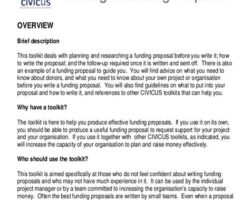Identifying the Workshop Objective
Identifying the Workshop Objective
The first step in creating an effective workshop is to clearly identify the workshop objective. The objective is the overarching goal or purpose of the workshop, and it serves as a guide for the development and delivery of the workshop content.
When identifying the workshop objective, it is important to consider the needs and expectations of the target audience. What do the participants hope to gain from attending the workshop? What specific knowledge or skills do they need to acquire? By understanding the audience’s needs, you can tailor the workshop content to ensure it is relevant and valuable.
Once the objective has been determined, it is helpful to communicate it clearly to the participants. This can be done through the workshop title or in the introduction of the workshop materials. By clearly stating the objective, participants will have a clear understanding of what they can expect to achieve by the end of the workshop.
In summary, identifying the workshop objective is a crucial step in the workshop development process. By understanding the needs of the audience and clearly stating the objective, you can create a workshop that is focused, relevant, and valuable to the participants.
Developing a Clear Workshop Structure
When it comes to conducting a successful workshop, having a clear structure in place is crucial. A well-structured workshop not only helps the facilitator to effectively convey the content but also ensures that the participants have a clear understanding of the flow of activities. Without a clear structure, workshops can often become chaotic and lose their intended purpose. In this blog post, we will explore the key elements of developing a clear workshop structure and how it can contribute to the overall success of the workshop.
1. Outline the Workshop Goals and Objectives:
Before diving into the details of the workshop structure, it’s essential to clearly define the goals and objectives of the workshop. This helps in setting the direction and purpose of the workshop, ensuring that all activities are aligned with the desired outcomes. When outlining the goals and objectives, it is important to be specific, measurable, achievable, realistic, and time-bound (SMART).
2. Determine the Workshop Agenda:
The workshop agenda is like a roadmap that guides the facilitator and participants throughout the workshop. It provides a clear timeline for each activity and helps in managing time effectively. The agenda should include the start and end time of the workshop, breaks, and the duration of each activity. By having a well-defined agenda, participants can mentally prepare for what’s to come and stay engaged throughout the workshop.
3. Break Down the Workshop Content:
Breaking down the workshop content into smaller modules or sections can make it easier for participants to grasp and retain the information. Each section should have a clear focus and should progress logically from one to the next. Consider using subheadings, bullet points, or numbering to organize the content in a visually appealing and easily digestible format. This helps participants to follow along and understand the structure of the workshop.
In conclusion, developing a clear workshop structure is vital for the success of any workshop. It provides a sense of direction, helps in managing time effectively, and ensures that participants can easily follow along. By outlining the workshop goals and objectives, determining the agenda, and breaking down the workshop content, facilitators can create a structured and engaging learning experience for the participants.
Selecting Appropriate Workshop Materials
When it comes to conducting a workshop, selecting the appropriate materials is crucial for its success. The right materials not only enhance the learning experience for participants but also contribute to the overall effectiveness of the workshop. Here are some key factors to consider when selecting workshop materials:
Relevance: It is essential to choose materials that are directly relevant to the workshop topic and objectives. The materials should align with the learning outcomes and help participants gain a deeper understanding of the subject matter. Using materials that are unrelated or too broad may confuse or distract participants, leading to decreased engagement and learning.
Diversity: Workshop materials should be diverse in nature to cater to different learning styles and preferences. Incorporating a variety of materials such as slideshows, handouts, videos, interactive activities, and visual aids can help accommodate different learning preferences and engage participants throughout the workshop. This ensures that the materials appeal to a wider range of participants and enhance their overall learning experience.
Accessibility: Make sure that the selected materials are accessible to all participants. Consider any potential barriers that participants may face, such as language or visual impairments, and ensure that the materials can be easily understood and accessed by everyone. Providing alternate formats, such as braille or translated versions, can help create an inclusive environment and maximize the learning opportunities for all workshop participants.
Overall, selecting appropriate workshop materials plays a crucial role in the success of a workshop. By considering factors such as relevance, diversity, and accessibility, workshop facilitators can ensure that the materials contribute to the participants’ learning experience and help them achieve the desired outcomes.
Creating Engaging Workshop Activities
When planning a workshop, one of the key factors to consider is how to make the activities engaging for the participants. Engaging activities will not only capture their interest but also help them retain the information better. Here are some strategies to create engaging workshop activities:
- Incorporate Hands-on Activities: One of the best ways to engage participants is by incorporating hands-on activities. These could be group discussions, role plays, or interactive exercises that require active participation. Hands-on activities not only keep participants engaged but also provide a practical experience, making the learning more meaningful.
- Use Multimedia: Another effective way to make activities engaging is by incorporating multimedia elements. This could be in the form of videos, slide presentations, or interactive online tools. Multimedia stimulates different senses, making the workshop more dynamic and appealing to participants.
- Promote Collaboration: Creating activities that foster collaboration among participants can enhance engagement. Group activities or projects encourage participants to work together, share their ideas, and learn from each other. By promoting collaboration, participants gain different perspectives and actively participate in the learning process.
| Benefits of Engaging Workshop Activities | How to Create Engaging Workshop Activities |
|---|---|
| 1. Increased participation | 1. Incorporate hands-on activities |
| 2. Improved retention of information | 2. Use multimedia |
| 3. Enhanced learning experience | 3. Promote collaboration |
Engaging workshop activities not only ensure the active participation of participants but also lead to better retention of information and an enhanced learning experience. By incorporating hands-on activities, such as group discussions and role plays, participants are actively involved in the learning process. Using multimedia elements like videos and presentations adds variety and stimulates different senses. Additionally, promoting collaboration through group activities fosters the exchange of ideas and different perspectives. The combination of these strategies will make the workshop activities engaging and effective.
Promoting the Workshop Effectively
When it comes to running a successful workshop, one of the key factors to consider is how effectively you promote it. Proper promotion ensures that your workshop reaches the right audience and generates interest and excitement among potential participants. So, how can you promote your workshop effectively?
Firstly, it is important to identify your target audience and understand their needs and interests. By knowing who your workshop is designed for, you can tailor your promotional efforts to reach the right people. Utilize social media platforms, industry forums, and mailing lists to spread the word about your workshop.
Creating compelling workshop materials is another crucial aspect of effective promotion. Develop visually appealing brochures, flyers, and online banners that highlight the key benefits and learning outcomes of your workshop. Use enticing language and strong visuals to capture the attention of your target audience.
To maximize your reach, utilize various promotional channels. Apart from digital platforms, consider partnering with relevant organizations or industry influencers who can help spread the word about your workshop. Take advantage of guest blogging opportunities or reach out to local media for interview features or press releases about your upcoming workshop.
- Utilize social media platforms
- Create visually appealing workshop materials
- Partner with relevant organizations or influencers
- Take advantage of guest blogging opportunities
- Reach out to local media for interview features or press releases
| Promotion Channels | Pros | Cons |
|---|---|---|
| Social Media | Wide reach, cost-effective | Can be time-consuming to manage |
| Organizational Partnerships | Access to a targeted audience | Requires relationship-building |
| Guest Blogging | Increased visibility and credibility | May require pitching and negotiation |
| Local Media | Local promotion and exposure | Approval and timeliness may vary |
Lastly, it is important to continuously engage with your audience throughout the promotional period. Respond to inquiries promptly and provide clear and concise information about your workshop. Consider offering early bird discounts or limited-time offers to create a sense of urgency among potential participants.
In conclusion, promoting your workshop effectively is crucial to ensure its success. By identifying your target audience, creating compelling materials, utilizing various promotional channels, and continuously engaging with your audience, you can generate interest and attract the right participants to make your workshop a valuable and impactful experience.
Ensuring Participant Interaction and Collaboration
When conducting a workshop, one of the key goals is to encourage active participation and collaboration among the participants. Creating an environment that fosters interaction not only enhances the learning experience but also enables participants to share their knowledge and insights with one another. In this blog post, we will explore some effective strategies to ensure participant interaction and collaboration throughout the workshop.
One of the first steps in promoting participant interaction is to establish clear communication channels. Providing participants with a platform to ask questions, share ideas, and provide feedback can significantly enhance their engagement. This can be done through various means such as virtual discussion forums, online surveys, or even dedicated email addresses for participants to reach out. By actively listening and responding to their queries, facilitators can create a sense of involvement and encourage participants to interact with one another.
Another strategy to foster participant collaboration is through group activities and exercises. By dividing participants into smaller groups, facilitators can create opportunities for them to work together to achieve a common goal. This not only encourages active participation but also promotes teamwork and collaboration. Group activities can range from brainstorming sessions, case studies, role plays, or even problem-solving tasks. Providing clear guidelines and objectives for these activities will ensure that participants are actively engaged and working together.
In addition to group activities, facilitating interactive discussions and knowledge sharing sessions also play a vital role in ensuring participant interaction and collaboration. Encouraging participants to share their personal experiences, perspectives, and insights not only enriches the learning process but also creates a sense of community. Utilizing various discussion formats such as panel discussions, Q&A sessions, or even breakout room discussions can facilitate effective knowledge sharing and promote collaboration among participants.
- Establish clear communication channels to encourage participant engagement.
- Utilize group activities and exercises to promote collaboration.
- Facilitate interactive discussions and knowledge sharing sessions for participant involvement.
| Benefits of Ensuring Participant Interaction and Collaboration: |
|---|
| 1. Enhanced learning experience |
| 2. Exchange of diverse perspectives and insights |
| 3. Building a sense of community among participants |
| 4. Promotes active participation and engagement |
| 5. Facilitates teamwork and collaboration |
Evaluating and Improving Workshop Outcomes
When it comes to conducting workshops, evaluating and improving the outcomes is an essential step in ensuring their effectiveness. Workshop organizers and facilitators need to have a clear understanding of how well the workshop achieved its objectives and how it could be enhanced for future participants. This article explores the importance of evaluating workshop outcomes and provides some valuable strategies to improve future workshops.
Why Evaluate Workshop Outcomes?
Evaluating workshop outcomes allows organizers to gauge the success of the workshop and determine whether it met its intended goals. It provides valuable insights into participants’ experiences and helps identify areas of strength and areas that need improvement. By gathering feedback and assessing the outcomes, organizers can make data-driven decisions to enhance future workshops and deliver a more impactful learning experience.
Strategies to Improve Workshop Outcomes
1. Solicit Participant Feedback: One of the best ways to evaluate workshop outcomes is by collecting feedback from the participants themselves. This can be done through surveys, focus groups, or one-on-one interviews. By asking specific questions related to various aspects of the workshop, organizers can gather valuable information about what worked well, what could be improved, and any suggestions for future workshops.
2. Assess Learning Objectives: To evaluate workshop outcomes, it is crucial to assess whether the learning objectives were met. This can be achieved by incorporating pre-and post-workshop assessments, quizzes, or knowledge retention tests. By comparing the participants’ performance before and after the workshop, organizers can determine the effectiveness of the learning content and make necessary improvements.
3. Use Peer Evaluation: In workshops that involve group activities or collaboration, peer evaluation can be a valuable tool to assess participants’ engagement and contribution. By providing structured criteria for evaluation, participants can assess their peers based on their involvement, communication skills, problem-solving abilities, and teamwork. This not only helps evaluate individual performance but also promotes a collaborative environment.
Incorporating Improvements
Based on the evaluation of workshop outcomes, organizers can identify areas that need improvement and incorporate necessary changes in future workshops. Some ways to enhance workshop outcomes include:
- Refining workshop content and structure based on participant feedback.
- Introducing new interactive activities or exercises to increase engagement.
- Providing additional resources or materials to support participants’ learning.
In conclusion
Evaluating and improving workshop outcomes is a crucial step towards delivering effective and meaningful learning experiences. By gathering participant feedback, assessing learning objectives, and implementing necessary improvements, organizers can ensure that future workshops are even better than before. Continuous evaluation and enhancement of workshop outcomes not only benefit the participants but also contribute to the overall success of the workshop program.
Frequently Asked Questions
1. Why is it important to identify the workshop objective?
Identifying the workshop objective is important as it provides a clear focus for the workshop and helps guide the planning and delivery of the session. It ensures that the content is relevant and aligned with the desired outcomes, making the workshop more effective.
2. What does developing a clear workshop structure involve?
Developing a clear workshop structure involves organizing the session in a logical sequence, outlining the main topics or sections, and determining the time allocated to each. It helps participants follow the flow of the workshop and ensures that all relevant content is covered efficiently.
3. How do you select appropriate workshop materials?
To select appropriate workshop materials, consider the learning objectives, the target audience, and the desired level of engagement. Materials can include handouts, slides, props, and visual aids. Aim for materials that are relevant, accessible, and enhance the learning experience.
4. What are some examples of engaging workshop activities?
Engaging workshop activities can include group discussions, role-playing exercises, interactive games, case studies, and hands-on tasks. These activities promote active learning, encourage participation, and help reinforce key concepts or skills.
5. How can you effectively promote a workshop?
To effectively promote a workshop, consider using various communication channels such as social media, email newsletters, online event listings, and professional networks. Create enticing and informative promotional materials, clearly stating the benefits and unique selling points of the workshop to attract potential participants.
6. Why is participant interaction and collaboration important in a workshop?
Participant interaction and collaboration are important in a workshop as they enhance the learning experience and facilitate knowledge sharing. It encourages active engagement, allows for different perspectives to be explored, and promotes a sense of community amongst participants.
7. How can workshop outcomes be evaluated and improved?
To evaluate workshop outcomes, collect feedback from participants through surveys or interviews. Assess the achievement of learning objectives, participant satisfaction, and areas for improvement. Use this feedback to make necessary adjustments, refine the workshop content, and enhance future workshop delivery.





